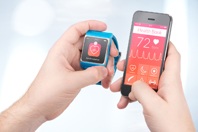CLINICAL TRIAL WEARABLES & SENSORS INSIGHTS
-
Telehealth In Clinical Trials: What Sites And Patients Think
Sites and patients have complicated views on telehealth in trials. Here’s what the evidence shows about who benefits, who bears the burden, and where the limits are.
-
Pick The Right PV Technology With Help From A Safety Data Management Expert
Otsuka's Head of U.S. GPV Safety Data Management Vikalp Khare shares how smart governance should inform pharmacovigilance (PV) technology choices.
WEARABLES & SENSORS RESOURCES
-
Explore the critical role of sleep in clinical trials and its impact on health outcomes, emphasizing the need to address sleep disturbances for more effective and reliable research.
-
As actigraphy continues to advance, explore how improvements in device comfort and usability will enhance patient compliance, further optimizing its pivotal role in clinical research across various therapeutic domains.
-
Explore wearable devices' transformative potential and innovative capabilities for data collection, patient monitoring, and endpoint measurement.
-
Discover how technological advancements have created the Internet of Things (IoT), in which numerous devices, including wearables like fitness trackers, can all be connected through software and cloud computing.
-
Review this evaluation framework for wear duration when confirming if wearable sensor-based methods for capturing gait and balance impairment in the free-living environment are fit for purpose.
-
Understand how eConsent can benefit trials and align with IRB ethical commitments, how to prepare your IRB submission for approval, and the future impact of large language models.
-
Prioritize the considerations outlined by the author to plan effectively, optimize wearable data utility, and significantly enhance your trial outcomes.






















